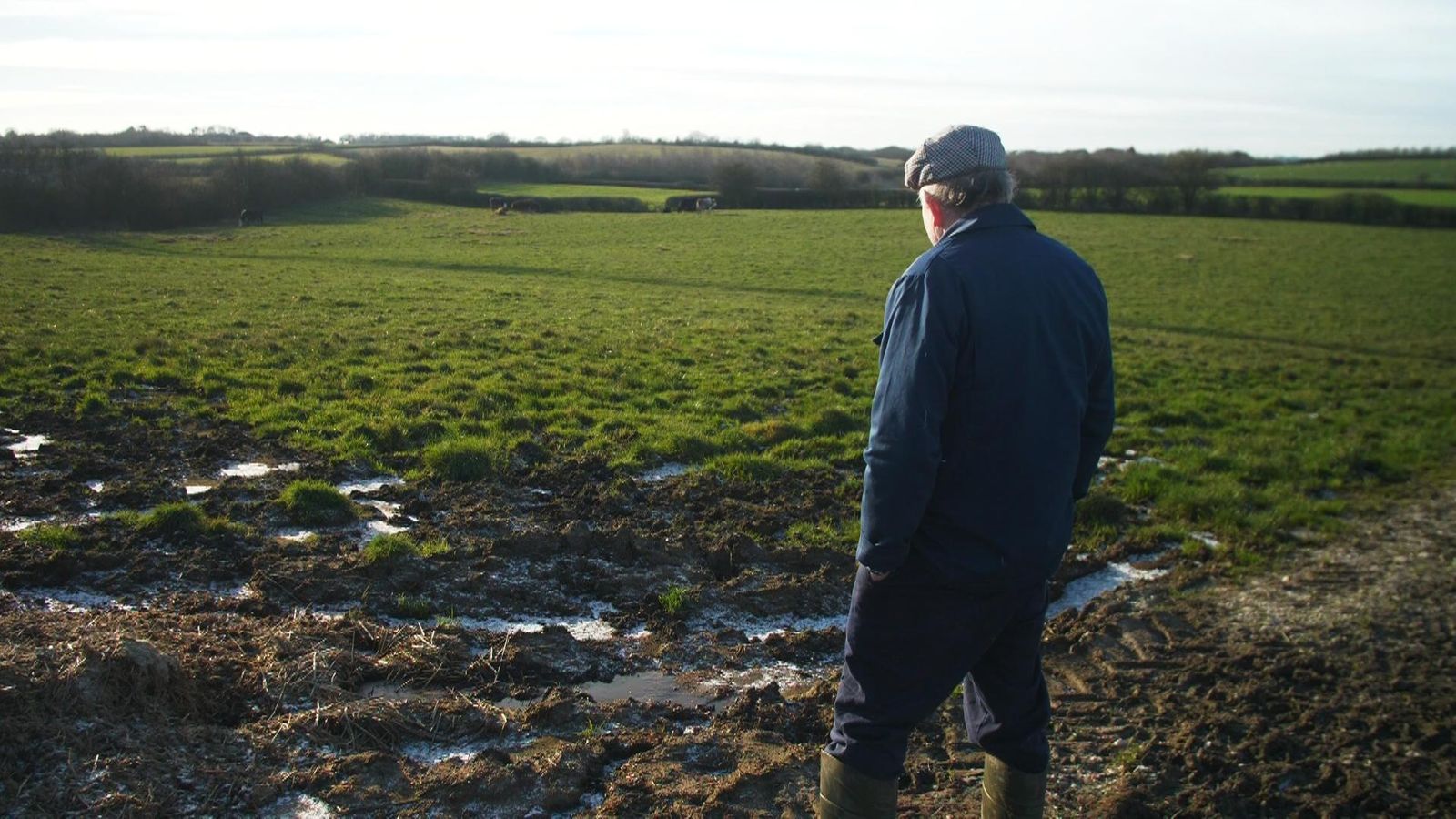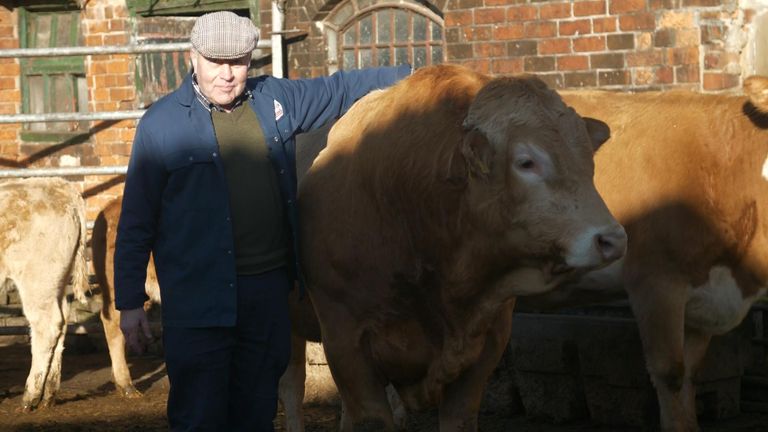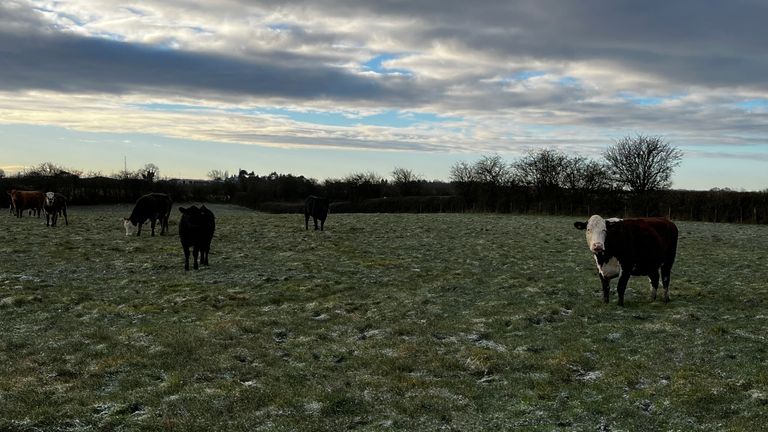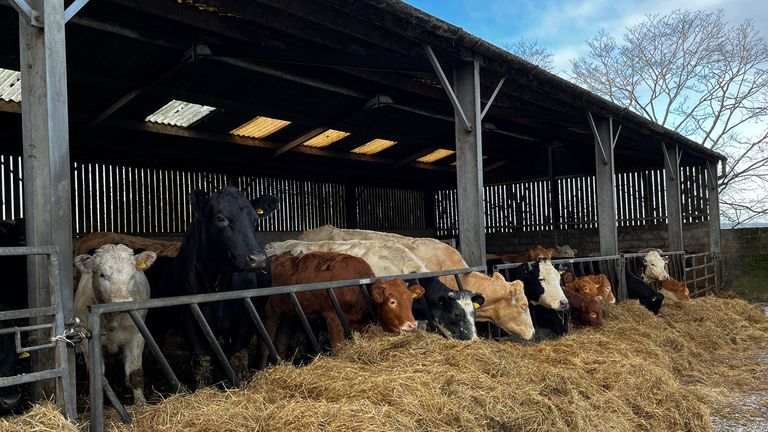It’s a frosty morning on Kidsley Farm in Derbyshire, a rare thing in this unusually warm winter.
Andrew Dakin’s beef herd is housed in the old brick barns, their breath steaming in the chill air.
Alongside scuttling chickens and tractors of varying vintages, this is the very image of a traditional farmyard. But for how long? Andrew is a tenant farmer and his landlord, who owns the land, wants to turn his pasture into a solar farm.
“Our old way of life will be gone forever. And I’ve worked on this farm all my life, seven days a week. I’ve not been on holiday since I was 15. Not because I didn’t want to, but I like being here on the farm.”
His family has worked the land here for 94 years. His mother still lives with him in the farmhouse. Although he would be allowed to stay in his home and is being offered some compensation, with the grazing replaced by photovoltaic panels, the job would be gone.
“It’ll all be fenced off with 10ft-high deer fencing. I think solar panels have got a part to play on house roofs, factory roofs and brownfield sites.”
Click to subscribe to ClimateCast with Tom Heap wherever you get your podcasts
But both political parties have huge ambitions for solar: the government wants five times as much power from the sun by 2035 and delivering that without touching farmland is implausible according to many experts, including Chris Hewett from Solar Energy UK.
“We are in a climate emergency and we do need to deploy this technology very quickly because climate change is the greatest threat to food security,” he says.
“If we don’t solve that, farms are not going to be viable in the future. I think all siting needs to be done sensitively and if businesses are affected there needs to be compensation.”
Watch the Climate Show with Tom Heap, Saturday and Sunday at 3.30 and 7.30pm on Sky News
Currently, just 0.1% of farmland is taken by solar panels – similar to the area claimed by Christmas trees – and they can be combined with sheep grazing and even some cropland. But in areas with good grid connections, productive farmland is targeted by solar developers.
Farmers who own their land might see this as a financial opportunity but tenants like Andrew Dakin have no say.
George Dunn, who runs the Tenant Farmers Association, says: “It’s becoming ever more common. Just about every week I get another TFA member calling me to say that they have a huge solar scheme that’s going to either engulf their farm or take a large part of their farm.
“People are literally in tears on the phone saying the years of business, years of investment they have been put to that holding will be lost. We’re talking about thousands of acres being taken out.”
Read more:
Film-makers on their ‘method directing’ approach to telling a salmon’s story
Should wet wipes should be flushed down the loo?
The transition to renewable energy will provide new jobs and opportunities. But it comes at a cost for farmers like Andrew Dakin.
“I don’t know what I’d do without the farm. It’s in my blood. Going to the market and talking to my farmer friends and about our experiences the previous week. That would all be gone. Life would never be the same again,” says Mr Dakin.
Part of Mr Dakin’s farm used to be an opencast coal mine. The widespread closure of that industry was a bitter episode in recent history.
National Energy transitions can be painful.



